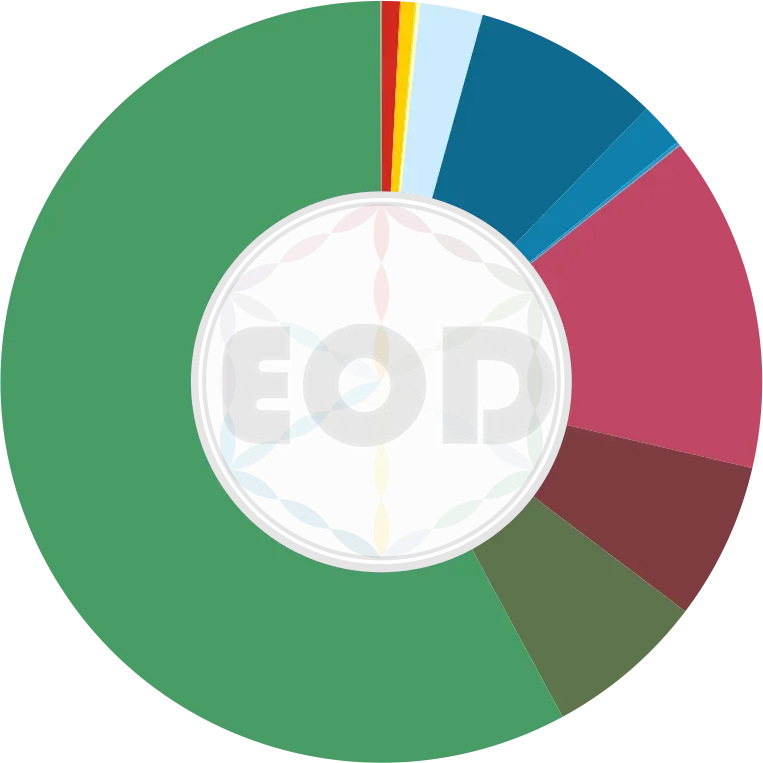Essential oil: Ylang Ylang
Botanical name: Cananga odorata var. genuina (Lam.) Hook.f. & Thomson
Botanical family: Annonaceae
Scent: Floral
Perfumery note: Base > Middle
Odor strength: Strong
Color: Pale yellow
Consistency: Medium
Minimum shelf life: 4 - 5 years
Dilution: 0.8%
Part used: Flowers
Method of extraction: Steam distillation
Type of plant: A tall tropical tree up to 20 metres high with large, tender, fragrant flowers, which can be pink, mauve or yellow. The yellow flowers are considered best for the extraction of essential oil.
Aromatic profile: Floral ylang
Principal places of production: The Comores, Indonesia, Northwest Madagascar, Philippines, Réunion, South China.
Storage: In a cool and dark place
Eugenol: 0.73%
Monoterpene phenols: 0.05%
Monoterpenes: 0.54%
Monoterpene aldehydes: 0.06%
Monoterpene oxides: 0.14%
Ethers: 2.48%
Monoterpene esters: 7.43%
Sesquiterpene esters: 1.77%
Other esters: 0.14%
Aromatic aldehydes: 0.01%
Aromatic alcohols: 0.02%
Aromatic esters: 13.31%
Monoterpenols: 6.2%
Sesquiterpenols: 6.35%
Sesquiterpenes: 53.9%
Sesquiterpene oxides: 0.03%
Cananga odorata var. genuina - Flowers EO

Therapeutic properties:
Phisical aspects:: Analgesic, Antibacterial, Anticancer, Antifungal, Anti-infective, Anti-inflammatory, Antiphlogistic, Antipruritic, Antiseborrheic, Antiseptic, Antispasmodic, Balancing (Breathing rate, Heart function, Hormonal, Sebum, Skin), Cardiotonic (lower your heart disease risk), Carminative, Cicatrisant, Cooling, Disinfectant, Emmenagogue, Emollient, Euphoric, Expectorant, Febrifuge, Hypotensor, Moisturizer, Muscle relaxant, Regenerative (hair and skin), Regulator (Endocrine - aids thymus, pancreas, adrenals, balances hormones), Restful, Sedative (Nervous), Soothing, Stimulant (Circulatory system, Reproductive, Scalp), Thread veins, Vascular, Vasodilator, Tonic (Scalp, Skin, Urinary)
Emotional/Mental aspects:: Aphrodisiac, Arousing, Calming, Harmonising, Relaxant, Nervine, Tranquilizer
Spiritual aspects:: Balancing (Sacral Chakra, Solar plexus chakra, Yin harmonising), Uplifting
Others:: Fixative
Therapeutic uses:
Phisical aspects:: Acne, Acne-prone, Colic, Cramps, Decay (biofilm), Diabete, Dry hair, Dry skin, Epilepsy, Frigidity, Hair conditions, Hair growth, Hair rinse, Hyperpnoea, Hypertension, Impotence, Infertility, Insect bites, Intestinal infections, Irritated skin, Loosens tight muscles, Malaria, Muscular cramps, Menstrual cramps, Nervousness, Normal skin, Oily skin, Palpitations, Physical exhaustion, Skin cleanser, Supports healthy cell division, Tachycardia, Thick hair, Typhoid, Wounds, Wrinkles
Emotional/Mental aspects:: Aggression, Anger, Anxiety, Brings out feelings, Chronic fatigue, Confidence, Depression, Despondency, Enhances communication, Fear, Frustrations, Increases feelings of love, Increase libido, Insomnia, Jealousy, Joy, Low self-esteem, Panic, Peace, Possessiveness, Reduces mood swings, Restful sleep, Shock, Stimulate intuition, Stress
Spiritual aspects:: Bring body, mind and spirit into greater alignment with one another, Creativity, Gratitude, Meditation, Spiritual awareness, Self-acceptance
Others:: Long lasting essential oil


Bath

Compress

Cosmetics

Diffuser

Flavoring

Haircare

Inhalation

Massage

Perfumery

Skincare
Application methods: Bath, Compress, Cosmetics, Diffuser, Flavoring, Haircare, Inhalation, Massage, Perfumery, Skincare, Soaps
Blends well with: Allspice, Amyris, Balsam (Peru), Basil, Bay (West Indian), Bay Laurel, Benzoin, Bergamot, Black pepper, Cajeput, Calamus, Cardamom, Cassia, Cedarwood, Chamomile (German, Roman), Cinnamon leaf, Clary sage, Clove Bud, Copaiba, Coriander seed, Costus, Cypress, Eucalyptus, Eucalyptus lemon, Fennel, Frankincense, Galbanum, Geranium, Ginger, Ginger lily root, Grapefruit, Helichrysum, Ho wood, Jasmine, Juniper, Lavender, Lemon, Lemongrass, Lime, Linden blossom, Litsea, Magnolia flower, Magnolia leaf, Mandarin, May chang, Melissa, Mimosa, Myrrh, Neroli, Oakmoss, Opopanax, Orange (sweet), Palmarosa, Palo santo, Patchouli, Petitgrain, Rose Maroc, Rose Otto, Rosewood, Sandalwood, Spikenard, Tangerine, Tea tree, Tuberose, Turmeric, Vetiver, Yarrow, Yuzu
Substitute with: Frangipani
Associated oil: -
Safety Warnings:
* Avoid if a history of low blood pressure, unless you are mixing it with an oil that will help to maintain or raise blood pressure.
* Do not use with inflammatory skin conditions.
* Excessive use of it may lead to headaches and nausea.
* May cause irritation on highly sensitive skin; a skin patch test is advisable.
* Ylang-ylang essential oil has a deeply relaxing effect and should not be used prior to driving, operating machinery, or doing other tasks that require concentration.
Comments
Post a Comment